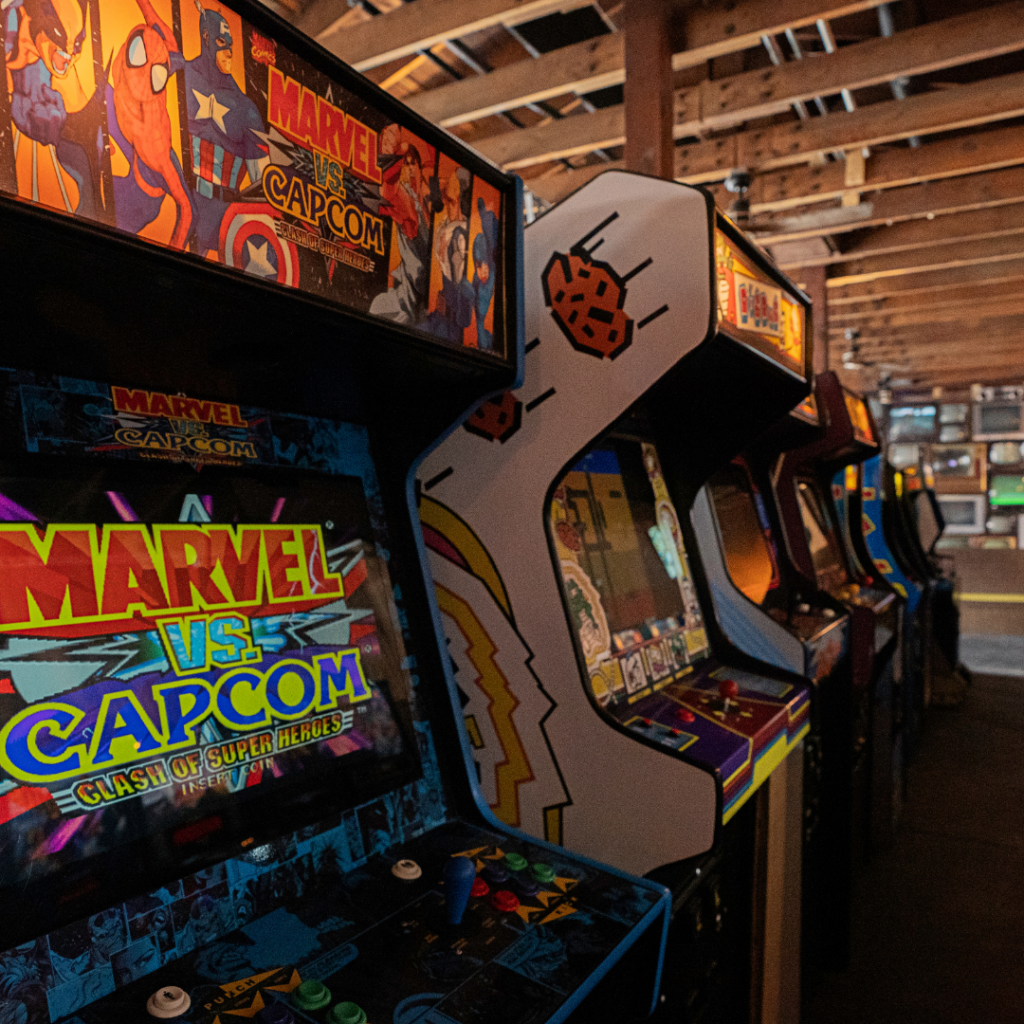
History of arcade games hold a special place in the history of South Korea’s gaming culture. From their humble beginnings in small gaming parlors to their dominance in the 1990s and gradual decline with the advent of PC gaming, arcade games have left an indelible mark on Korean entertainment and societal trends. This blog explores the journey of arcade gaming in South Korea, its golden era, challenges, and its ongoing cultural impact.
The Early Days of Arcade Games in South Korea
Arcade gaming began to gain traction in South Korea during the 1970s and 1980s. Imported arcade machines from Japan, such as Space Invaders and Pac-Man, were introduced to Korean audiences, sparking curiosity and excitement. Local businesses started setting up small arcades in urban areas, where students and young adults would gather to experience these technological marvels.
At the time, access to home gaming consoles was limited due to high costs, making arcades the primary venue for gaming. These spaces became hubs of social interaction and leisure for Korea’s youth.
The Golden Era: 1990s Arcade Boom
The 1990s history of Arcade games marked the golden era of arcade games in South Korea. During this time, iconic titles like Street Fighter II, Tekken, and King of Fighters dominated arcades. The competitive nature of these games fueled the rise of a vibrant gaming community, with players frequently challenging each other to showcase their skills.
Major cities like Seoul and Busan saw a proliferation of large arcade centers, often located in entertainment districts. These venues not only featured the latest games but also introduced cutting-edge technology such as racing simulators and rhythm games. Dance Dance Revolution and Pump It Up, a Korean-made rhythm game, became cultural phenomena, attracting players of all ages.
The Decline: The Rise of PC Bangs
By the late 1990s and early 2000s, the popularity of arcades began to wane. The introduction of affordable home gaming consoles and the explosive growth of PC gaming contributed significantly to this decline. South Korea’s unique PC bang (internet café) culture provided gamers with easy access to online multiplayer games such as StarCraft and Lineage at a low cost.
Additionally, stricter government regulations on arcades, aimed at curbing underage gambling and delinquency, led to the closure of many smaller establishments. These factors, combined with the rapid evolution of gaming technology, shifted the focus away from arcades.
The Legacy and Cultural Impact of Arcade Games
Despite the decline in their popularity, arcade games have left a lasting legacy in South Korea. Many gaming concepts and competitive formats were born in arcades, laying the foundation for the country’s esports culture. The skills and camaraderie developed in arcade environments translated seamlessly into online gaming communities and tournaments.
Arcade games also influenced Korean pop culture. Rhythm games like Pump It Up inspired music and dance trends, while fighting games shaped the early careers of many professional gamers. Even today, retro arcade gaming events and exhibitions draw crowds who wish to relive the nostalgia of the golden era.
Modern Revival: Neo-Arcade Culture
In recent years, South Korea has witnessed the history of Arcade games a resurgence of interest in arcade gaming, albeit in a different form. Retro-themed arcades and gaming bars have emerged, game tournaments, targeting millennials and older generations looking for a nostalgic experience. These venues combine classic arcade machines with modern amenities, offering a unique blend of past and present.
The rise of mobile and casual gaming has also breathed new life into arcade-style games. Titles inspired by classic arcade mechanics, such as rhythm and puzzle games, have gained popularity on smartphones, bringing the arcade experience to a new generation.
Conclusion
The history of arcade games in South Korea is a testament to the transformative power of gaming. From their rise in the 1970s to their golden age in the 1990s and eventual decline, arcade games have shaped the social and cultural fabric of South Korea. Today, their legacy continues to thrive, reminding us of a simpler yet groundbreaking era of gaming. As retro arcades and modern reinterpretations of classic games gain traction, South Korea’s arcade gaming culture proves that the magic of arcades is far from forgotten.
